- M.A
- News
- 2407 views
- 0 comments
The carpet beetle is one of the most destructive insects, capable of causing extensive damage to bedding, clothes, carpets, and upholstered furniture. Please keep reading everything you need to know about carpet beetles, including their appearance, eggs, and signs of a carpet beetle infestation.
A healthy carpet beetle diet consists of EVERYTHING you have in your house. You may face the terror of the carpet beetle if you notice ladybug-like creatures crawling around your home and holes in your clothes, furniture, and carpets.
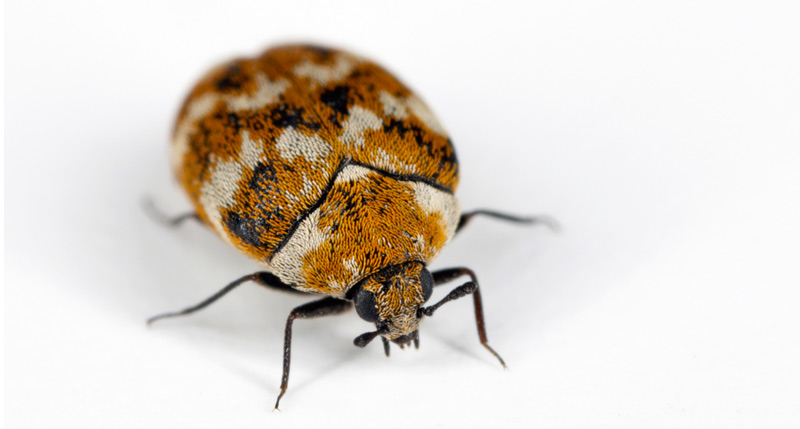
As their name implies, carpet beetles sometimes infest carpets. In addition to clothes moths, these pests also feed on wool, fur, felt, silk, feathers, skins, and leather. Such materials contain keratin, a fibrous animal protein that the larvae can digest. Cotton and synthetic fabrics such as polyester and rayon are rarely attacked unless blended with wool or heavily soiled with food stains or body oils. Carpet beetle infestations can develop undetected, causing damage to vulnerable items.
What Are Carpet Beetles?
A carpet beetle is a small insect that can become a pest in the house if not controlled. Young carpet beetles and larvae feed on natural fibers like wool, silk, leather, animal products, and pet hair. The adult carpet beetle feeds on pollen, plants, and flowers.
Cyrus Crafts; Luxury & Unique Products
How to Identify a Carpet Beetle
There are three known species of carpet beetle. These are the Varied Carpet Beetle, the Furniture Carpet Beetle, and the Black Carpet Beetle.
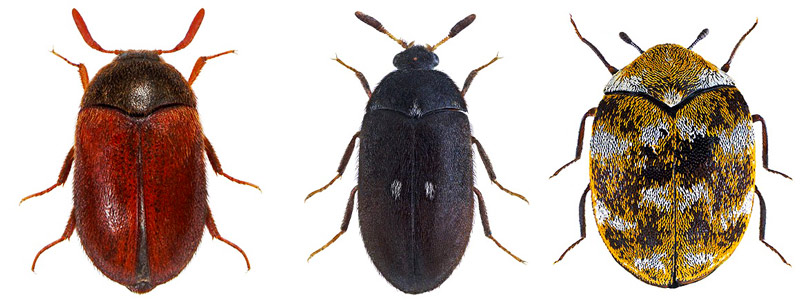
Varied Carpet Beetle
Or"Anthrenus verbasci". With a length of around 0.25cm, these are the smallest carpet beetles. They have a slightly rounded shell and are usually black/brown with flecks of white on their backs.
Furniture Carpet Beetle
Or "Anthrenus flavipes". Their shells are light brown speckled with black and white markings, slightly larger in size than the Varied Carpet Beetle at around 0.3-0.5cm.
Black Carpet Beetles
Or "Attagenus unicolor". As the last member of the carpet beetle family, it is also the largest, measuring approximately 0.3-1cm long. Additionally, their shells are either solid brown or shiny black, unlike their counterparts, which are rounded.
While all carpet beetles eat anything, the Varied and Furniture carpet beetles prefer natural fibers like wool and leather. The Black carpet beetle has more refined tastes, they tend to feast on dry foods such as cereal, oats, and dry pet food.
How Do You Prevent Carpet Beetles?
- Clean rugs regularly and thoroughly
- Keep food in well-sealed containers
- Cover windows and doors with bug nets
- Inspect plants and flowers before bringing them indoors
- Ensure that all cracks and gaps around doors and windows are sealed
Controlling Carpet Beetle Infestations
To eliminate carpet beetles, you must locate all infested items. Typical sources are seldom-used wool or fur hats or scarves in closets, antique handmade rugs in basements, or the remains of a bird or squirrel nest in the attic. Carpet beetles prefer to dwell in dark, undisturbed areas where susceptible items are stored for long periods. When inspecting clothing, pay attention to seams, folds, and creases (e.g., cuffs and collars) where larvae often prefer to feed. Larvae also tend to infest the lower edges of rugs and carpeting.
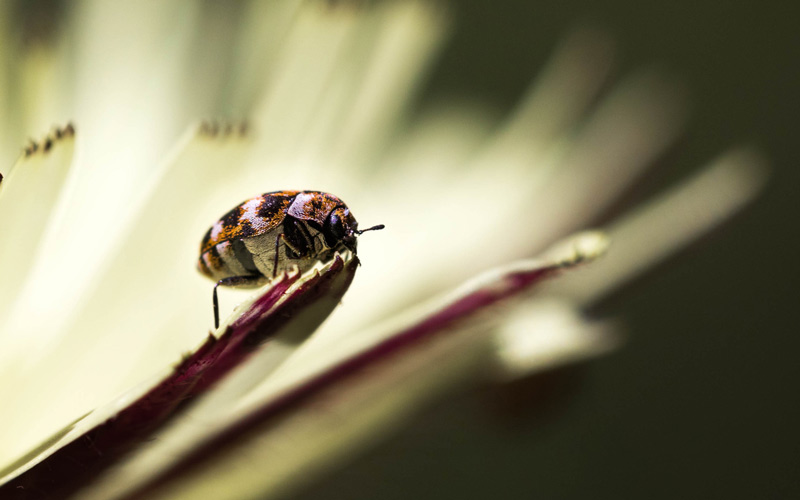
What is the Life Cycle of a Carpet Beetle?
An adult carpet beetle's life cycle will be between 3-4 weeks. It takes 7 to 28 days for freshly laid eggs to hatch; once they do, they resemble hairy worms. At the end of their life cycle, they will become pupae - their beetle-like state - and live between 2 and 3 weeks. Carpet beetles have a life expectancy of 3-4 weeks as adults.
Where Can You Find Carpet Beetles?
A variety of household items and furniture can be infested by carpet beetles once they have entered your home. Wool-made clothing, rugs and carpets are easy prey. Having mounted trophies can attract carpet beetles if you are a hunter with a collection of mounted trophies. If a small animal, such as a squirrel or a rat, has been trapped in your walls and died, the beetles will infest its fur, too. In addition to dried flowers and potpourri, some beetles feed on dry pet and human food (pasta, flour, breadcrumbs, etc.). If you've looked into all those places and still are not finding the source of the infestation, consider checking out a professional pest control service.
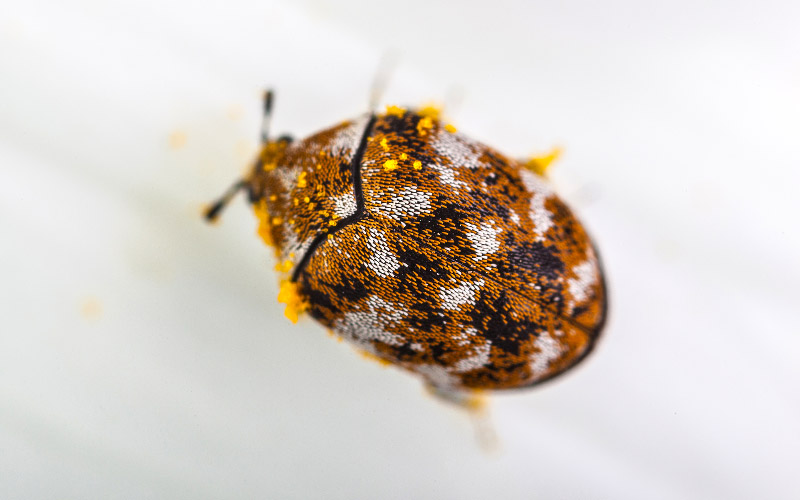
Do Carpet Beetles Cause Allergic Reactions?
Yes, their dead skin sheds, and hairs may cause skin irritation. To stop the reaction and increase humidity in the house, you must physically remove them. Pesticides alone won't stop any irritation, as the problem is the physical presence of dead skin shells.
That's it, your carpet beetle removal guide. You just need to find the source, vacuum thoroughly every day, throw away infested items, and wash everything else. If you have been struggling against a carpet beetle infestation and are at your wit's end, it may be time to call in the professionals and let pest control experts rid your life of the carpet beetle menace.
You can get complete information about all home and office rugs, carpet tiles, etc., in Cyrus Mag.
What do you think is the best way to deal with carpet beetles? Leave a comment.















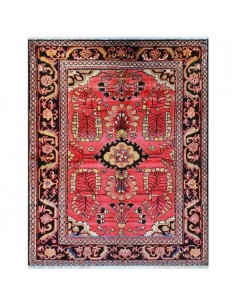

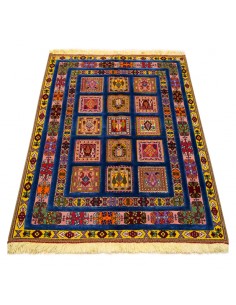

Comments (0)